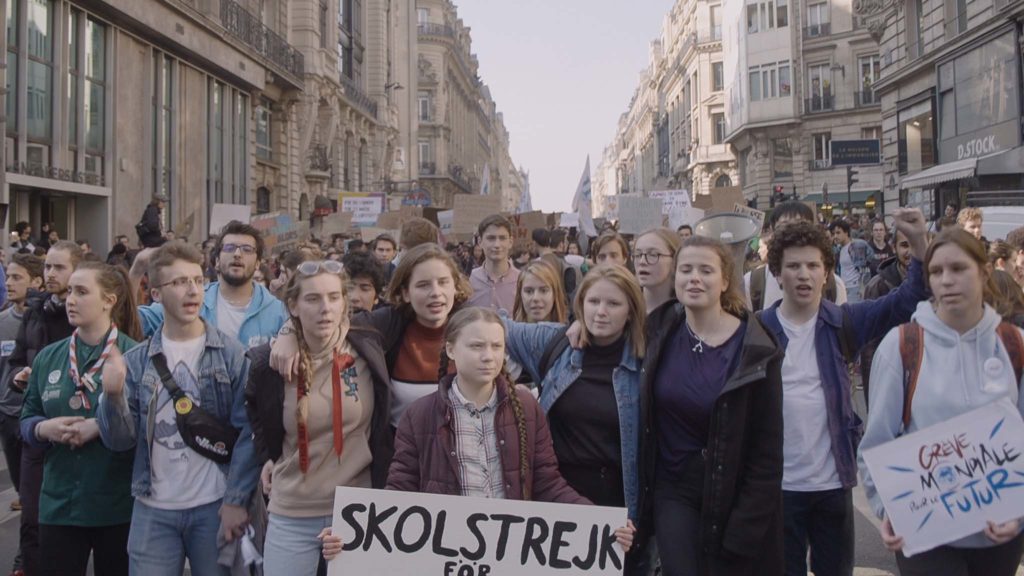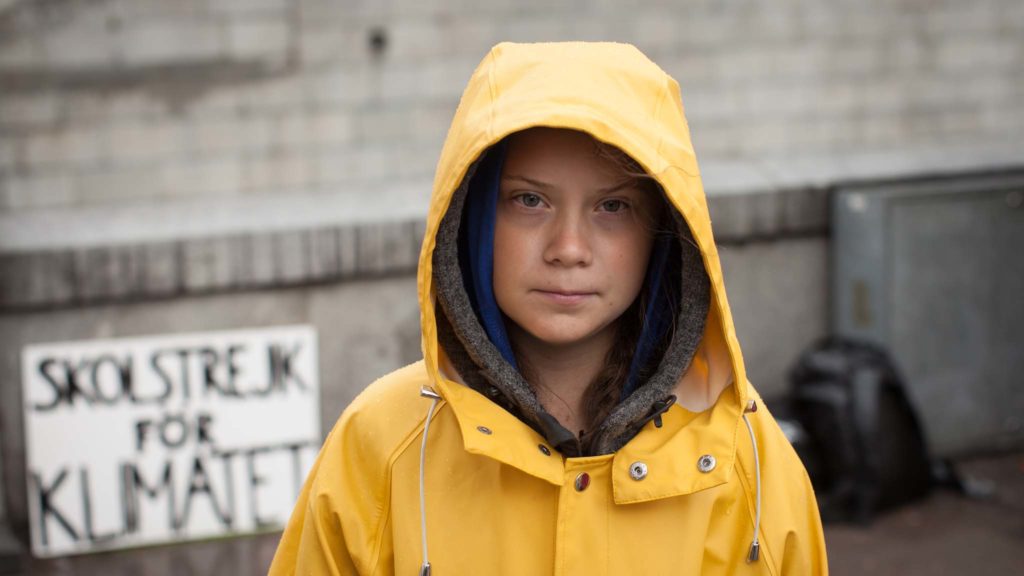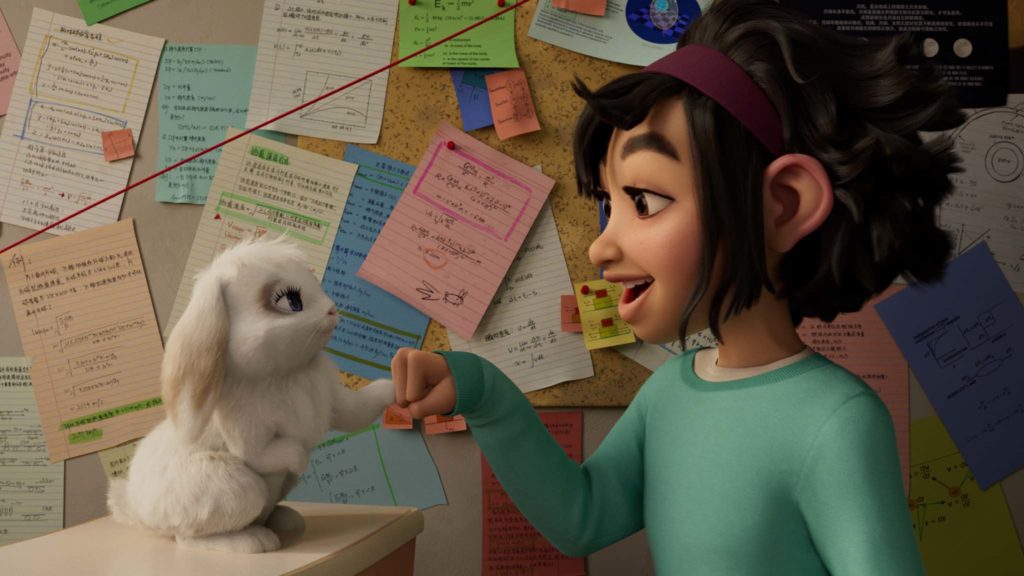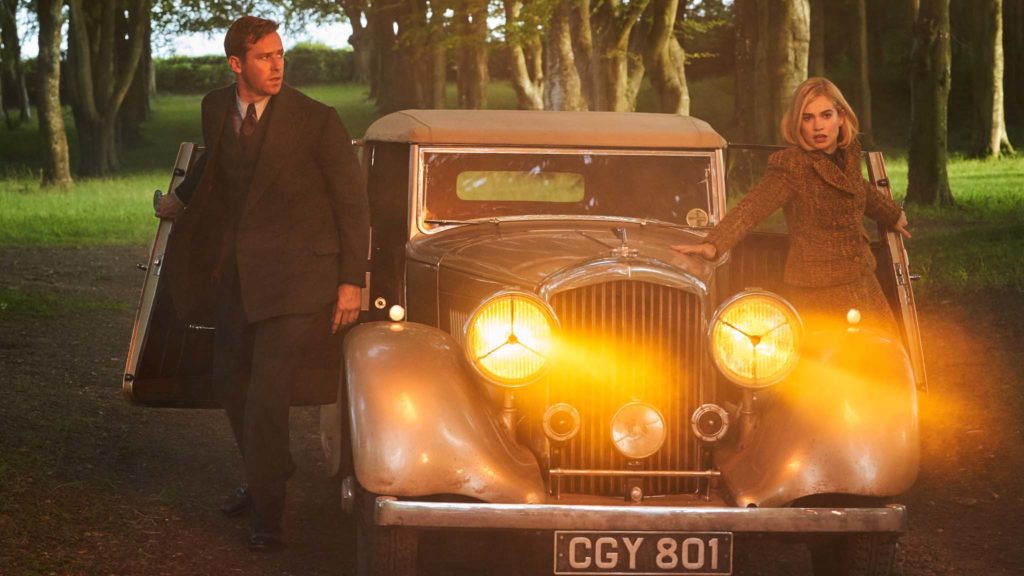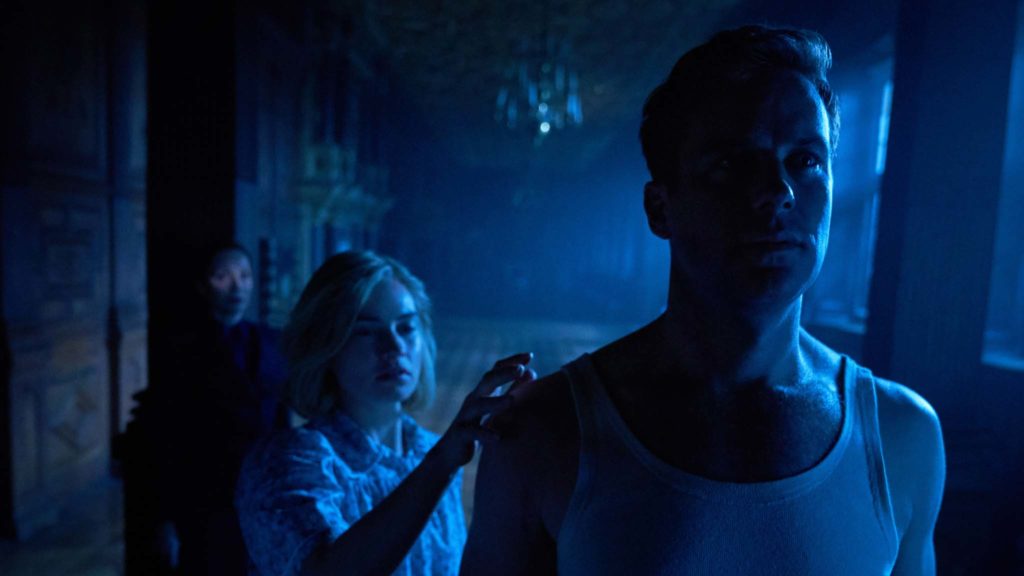Documentary
I Am Greta (12A)
Review: In 2018, a 15-year-old Swedish climate change activist delivered a swingeing speech at a United Nations conference in Katowice, Poland. “You are not mature enough to tell it like it is, even that burden you leave to us children,” she scolded the attending dignitaries. Her stony-faced, sobering summation – “You have run out of excuses and we are running out of time” – sparked one simple question. Who is Greta Thunberg?
Filmmaker Nathan Grossman claims to have the answers in his polished documentary, which follows the teenager over the course of 12 months when her life became something akin to a blockbuster film. “A very surreal movie because the plot would be so unlikely,” quips Greta in voiceover. Slickly assembled and politely intrusive, I Am Greta isn’t the warts’n’all portrait that the title might suggest but an affecting and reverential study of a girl with Asperger syndrome, rudely dismissed by one American news commentator as “a mentally ill Swedish child who is being exploited by her parents and the media”.
Early footage from Stockholm in August 2018, before the speech, shows Greta sitting on the pavement opposite the parliament building with a handmade sign – School Strike For Climate – and pamphlets detailing her cause. “Adults say one thing and do something completely different,” she laments as other schoolchildren join her movement, giving birth to the hashtag FridaysForFuture. Scenes between Greta and her omnipresent father Svante are the most touching, particularly instances when he pleads her to make time in their gruelling schedule to eat. She repeatedly refuses, determined to share her message as loudly as possible. “Once the climate crisis has gotten your attention, you can’t look away,” she argues.
Greta is clearly uncomfortable with the prospect of heightened media interest. “No one will know who you are,” Svante assures his daughter as they leave the conference centre in Poland. “That’s nice,” she replies sweetly, oblivious to the global media storm that will quickly engulf them both. For the most part, Grossman’s film retains a respectful distance with brief glimpses of Greta’s school graduation ceremony and video calls to her mother.
One of the few occasions when reality bites takes place on a sailing yacht in the middle of the Atlantic Ocean as Greta records an audio diary during her emissions-free journey from Portsmouth to New York. “I don’t want to have to do all this,” she tearfully confides as waves crash against the monohull. “It’s too much for me.” For those few seconds, Greta is visible in her truest and most relatable form: a frightened girl at the mercy of a natural world she hopes to protect, who simply wants to be at home with her dogs Moses and Roxy. So who is Greta Thunberg? I’m still not sure.
Find I Am Greta in the cinemas
Animation
Over The Moon (U)
Review: An emotionally conflicted girl comes of age 150 million kilometres from Earth in Glen Keane and John Kahrs’ visually stunning computer-animated odyssey. Dedicated to the memory of scriptwriter Audrey Wells, who died of cancer in 2018, Over The Moon teaches heavy-handed lessons about embracing the future through the eyes of a teenager, who refuses to accept that anyone could replace her late mother. The loss of Wells at the age of 58 lends poignancy to the lead character’s inner turmoil.
Keane and Kahrs’ film is immersed in Chinese culture, specifically the Mid-Autumn Festival when families come together in joyful celebration, devour calorific mooncakes and release sky lanterns. Mindful of the environmental concerns about lanterns, the filmmakers wisely ignore that part of festivities and embellish the legend of a lovesick moon goddess with a musical soundtrack that warmly embraces self-empowerment and self-reflection including a rousing K-pop anthem entitled Ultraluminary. The quality of the animation is impressive, notably the expressiveness of the adolescent heroine, whose anguish is achingly evident in her furrowed brow and widening eyes.
Thirteen-year-old Fei Fei (voiced by Cathy Ang) was raised by her mother (Ruthie Ann Miles) and father (John Cho) on the legend of moon goddess Chang’e (Phillipa Soo), who sacrificed her love for mortal warrior Houyi (Conrad Ricamora) to live forever in the starry firmament. According to the myth, Chang’e resides on the moon with her companion, Jade Rabbit, and her tears are the stardust that twinkles in the night sky. Fei Fei clings onto this story and a silk scarf adorned with the goddess’ likeness as cherished memories of her late mother. Four years after the heartbreaking loss, the teenager’s widowed father nervously introduces his girlfriend, Mrs Zhong (Sandra Oh).
Fei Fei reacts angrily to the prospect of another woman invading their home. She resolves to remind her father of the love he lost by building a rocket ship to the moon to prove Chang’e exists. Mrs Zhong’s chatterbox eight-year-old son, Chin (Robert G Chiu), whose greatest achievement is fourth place in a ping pong tournament, is an unwelcome stowaway on the interstellar mission. The bickering children blast off to the colour-saturated kingdom of Lunaria, where they encounter a loveable creature named Gobi (Ken Jeong), who helps the prospective step-siblings to realise the value of teamwork.
Over The Moon bears thematic similarities to Coco and Wonder Park but sets itself apart with a retina-searing luminescent palette and a menagerie of outlandishly colourful characters. The script short-changes Jeong as the otherworldly comic relief and operates most effectively when it gently tugs a heartstring rather than aggressively mining a laugh. There are surprisingly few obstacles on Fei Fei’s journey to acceptance but Ang’s sensitive vocal performance ensures each tear-stained emotional outpouring feels genuine.
Find Over The Moon in the cinemas
Thriller
Rebecca (12A)
Review: Last night, I dreamt I went to Manderley – the sweeping, impeccably designed Manderley captured in stunning black and white by cinematographer George Barnes in the Oscar-winning 1940 film of Rebecca directed by Alfred Hitchcock. Distinguished by powerful performances from Sir Laurence Olivier, Joan Fontaine and Judith Anderson as menacing housekeeper Mrs Danvers, the first big screen adaptation of Daphne du Maurier’s novel masterfully conjured an air of menace. It was Hitchcock’s first foray into filmmaking across the Atlantic and revelled in the ambiguity of the relationship between the Danvers and her mistress within the rigid moral guidelines of the Hays Code.
I longed to be back there, at that Manderley, while watching Ben Wheatley’s stylish whirl through a household haunted by the past. His rendition, adapted for the screen by Jane Goldman, Joe Shrapnel and Anna Waterhouse, relies heavily on the source text for narrative structure but takes full advantage of modern-day technical wizardry for visual flourishes including an ominous flock of birds swirling in the sky – a nod to Hitchcock, perhaps.
Lily James plays the painfully naive, unnamed narrator, who arrives at Hotel Regina in Monte Carlo to cater to the whims of monstrous society doyenne, Mrs Van Hopper (Ann Dowd). When her mistress falls ill, the companion is left to her own devices and unexpectedly sparks romance with handsome widower Maxim de Winter (Armie Hammer). Mrs Van Hopper attempts to end the affair by hurriedly returning to America. Maxim intervenes – “Come with me to Manderley… as my wife” – and the lovebirds marry en route to his ancestral nest in England. The household is in the iron grip of glowering housekeeper Mrs Danvers (Kristin Scott Thomas) and the memory of the master’s late wife, Rebecca.
As the new Mrs de Winter strives to live up to her predecessor, she yearns to win the approval of Maxim’s sister Beatrice (Keeley Hawes) and staff including estate manager Frank Crawley (Tom Goodman-Hill) and head butler Firth (Jeff Rawle). However, a terrible sadness lingers in the corridors of Manderley and Mrs Danvers silently schemes to undermine anyone who threatens to usurp her beloved Rebecca in Maxim’s affections. “He can’t love you because you’re not her!” the housekeeper snarls at her new mistress.
Running a few minutes shorter than Hitchcock’s version, Rebecca suffers the same fate as its brittle heroine and struggles to escape from the shadow of its formidable predecessor. Emotionally it’s a decidedly chilly affair, even between James and Hammer, and the film’s pulse only begins to quicken when a meticulously tailored Scott Thomas makes her insidious presence felt. Composer Clint Mansell’s atmospheric soundtrack is a willing accomplice to Wheatley as he builds inexorably to big reveals about Rebecca’s grim fate.
Find Rebecca in the cinemas


